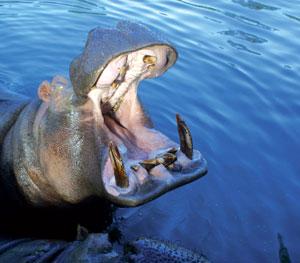|
WHILE many companies struggle with change and new challenges brought on by market forces and the toughening economy, one company, ADL Group, appears to be thriving. The recent loss of a major brand partnership has provided the catalyst for the company to take control of its future and explore new opportunities. ADL Automation has now rebranded as ADL Group and taken on three exciting new agencies: LS Industrial Systems (a subsidiary of Korean industrial powerhouse LG Group); Envirolyte water treatment systems; and Hoffman – a world-renowned specialist in industrial electronic and electrical enclosures. ADL Group manager Craig Gledhill is clearly excited about these latest developments, and sees many industrial sectors benefiting from the new distributorships. A special demonstration trailer was purpose-built to take these technologies to National Fieldays in June, and Gledhill is planning a nationwide roadshow over the next three months to introduce companies to the benefits of the three product ranges. Treatment fit for a hippo From an environmental viewpoint, perhaps the most significant new agency for ADL is the Envirolyte water treatment system – available in a range of units sized to address a large number of applications: from a farm, to large scale projects requiring industrial disinfection, sterilisation or water purification. The water treatment technology was first developed in the late 70s in conjunction with the Russian Institute for Medical and Scientific Research and has been successfully perfected and deployed overseas for many years. Envirolyte units electrolyse a saline solution, separating positive and negative ions. The result is two types of activated solutions: Anolyte, a powerful antiseptic sanitiser, and Catholyte, a non-foaming detergent cleaner. Systems are scalable, with Anolyte output ranging from 400 litres per day to 10,000 litres per day, depending on the unit. One litre of Anolyte is enough to sterilise 1000 litres of potable water. It is non-toxic, non-hazardous and eco-friendly, harmless to humans and animals, and lethal to all known pathogens and microbial, including spores, viruses, bacteria-phage, bacteria, yeast and moulds, algae, fungus and mildews. It also kills Leptospirosis and Tuberculosis. Other water-borne pathogens, including E-Coli, Legionnaires and Guardia, Staphyloccus Aureus and Pseudomonas Aug, can easily be treated. Anolyte and Catholyte are also NZFSA-Approved to be used in food processing plants and safe to discharge. In fact, it is its environmentally-friendly credentials that helped convince the Auckland Zoo that the Envirolyte system is just what it needed to assist with the sanitation of wastewater generated from animal enclosures within the park, before being safely discharged. |
An Envirolyte EL6000 Sanitation Unit capable of producing 6000 litres of Anolyte per day, was commissioned in January this year and the hippo enclosure is one of the facilities that benefits from the dosed water. Snorkel the Hippo lives in the last pond in the Zoo river flow path. Her water quality was unsatisfactory to say the least and her health was at risk. The Zoo produces approximately 72,000 litres of waste water per hour, with an Anolyte dosing rate of around 200 litres per hour – which represents a rate of just 0.277 percent. The Zoo is rapt with the system – not only is the water safe for animals, but it is also returned to the environment safely. Snorkel is now a happy and healthier hippo too. Gledhill is predicting big demand for the Envirolyte water treatment system, because it has such wide applications. These include town water supplies and small processing plants, livestock health and poultry farms, dairy farms (ideal for drinking troughs), meat processing plants, washdown applications, effluent treatment, cooling towers (for elimination of biofilm and algae formation) – indeed, as Gledhill puts it, “this non toxic, non hazardous treatment is effective anywhere a nasty bug can grow in water”.• reader enquiries quote: D090712
Email: craig.gledhill@adl-automation.co.nz
|






